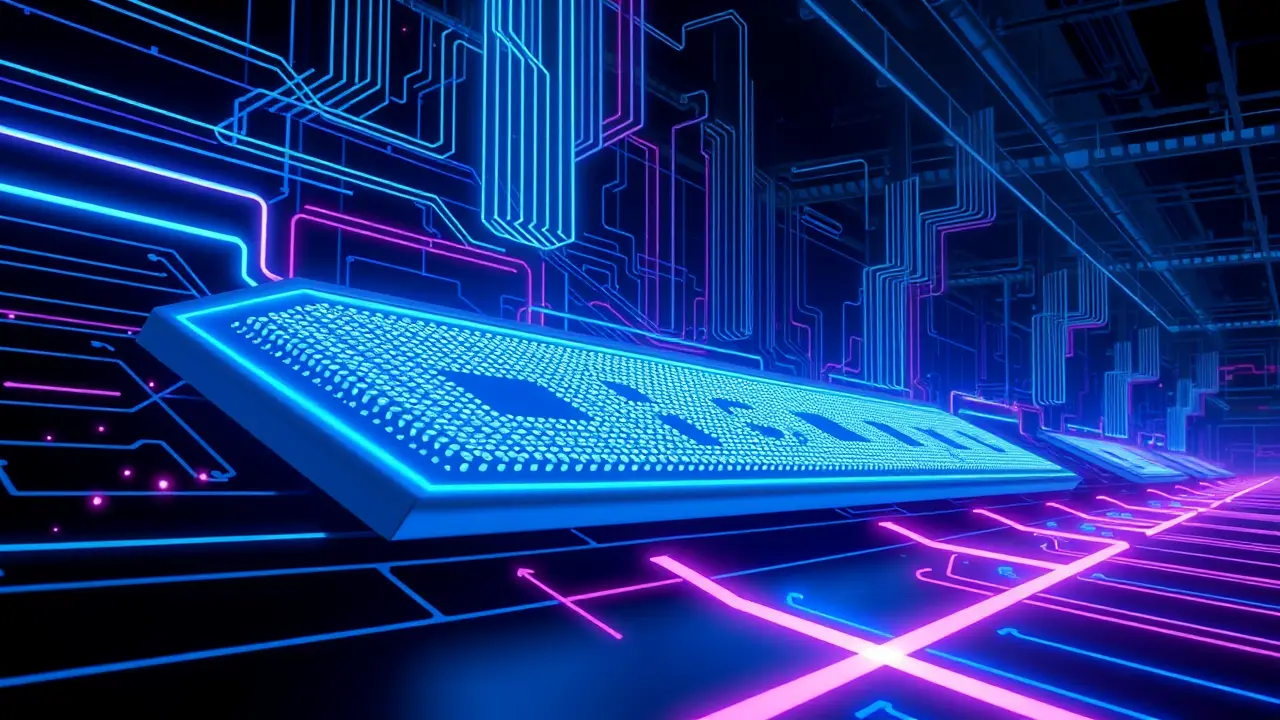
AIchips & hardwareGoogle TPU
Google Unveils New AI Chips and Major Anthropic Partnership
DA
Daniel Reed
4 hours ago7 min read
Google has fundamentally escalated the infrastructure arms race powering artificial intelligence with the introduction of its seventh-generation Tensor Processing Unit, Ironwood, and a landmark partnership with Anthropic that signals a seismic shift in the industry's priorities. This isn't merely an incremental hardware update; it represents a strategic pivot into what Google executives are calling 'the age of inference,' a transition from the intensive, one-time process of training massive models to the relentless, global-scale challenge of serving them to billions of users in real-time.The sheer scale of Ironwood is staggering—a single pod interconnects 9,216 individual chips via a proprietary network humming at 9. 6 terabits per second, creating a unified supercomputer with access to 1.77 petabytes of High Bandwidth Memory. To put that bandwidth into perspective, it's akin to transferring the entire digital corpus of the Library of Congress in under two seconds, a feat of engineering that underscores the voracious data appetite of modern transformer-based models.This architectural leap, which delivers more than four times the performance of its predecessor for both training and inference, is a testament to a system-level co-design philosophy that prioritizes holistic efficiency over simply cramming more transistors onto a die. The most resounding validation of this approach comes not from Google's own benchmarks, but from Anthropic's staggering commitment to access up to one million of these TPU chips—a multi-year contract valued in the tens of billions of dollars that stands as one of the largest infrastructure deals in cloud computing history.This commitment from a leading AI safety company, which will require well over a gigawatt of power capacity by 2026, is a powerful endorsement of Google's long-term bet on vertical integration, from custom silicon design through to the software stack, as a viable challenger to Nvidia's entrenched dominance. The underlying motivation is a fundamental change in computational demand: where training can tolerate batch processing, inference for conversational agents and autonomous workflows demands consistently low latency and unwavering reliability.A delay of even a few seconds can render the most sophisticated model unusable, a reality that has forced cloud providers to rethink their entire stack. Google's parallel expansion of its Arm-based Axion processors further reveals this layered strategy, acknowledging that a modern AI application is an ecosystem where specialized accelerators like Ironwood handle the core model execution, while highly efficient general-purpose CPUs manage the surrounding orchestration, data preprocessing, and API logic.This dual-pronged assault on the compute problem is bundled within Google's 'AI Hypercomputer' concept, an integrated system that also includes critical software layers like the Inference Gateway, which uses techniques like prefix-cache-aware routing to slash latency and costs. However, the physical challenges are as monumental as the digital ones.Google is now implementing power delivery systems capable of supporting one megawatt per server rack—a tenfold increase from the norm—and has deployed liquid cooling at a gigawatt scale, a necessity as individual AI chips begin to dissipate over 1,000 watts of heat. This custom silicon gambit, also pursued by AWS and Microsoft, carries immense risk, requiring billions in upfront investment and battling against Nvidia's deeply entrenched CUDA software ecosystem.Yet, Google's argument is one of symbiotic innovation, recalling that the first TPU a decade ago ultimately unlocked the Transformer architecture that defines modern AI. As the industry grapples with whether it can sustain this breathtaking pace of capital expenditure, Google's announcements make a compelling case that the future of AI will be as much about the relentless, efficient, and reliable silicon it runs on as the brilliance of the models themselves.
#Google TPU
#Ironwood
#AI chips
#Anthropic
#cloud computing
#AI infrastructure
#inference
#Nvidia
#featured
Stay Informed. Act Smarter.
Get weekly highlights, major headlines, and expert insights — then put your knowledge to work in our live prediction markets.
© 2025 Outpoll Service LTD. All rights reserved.